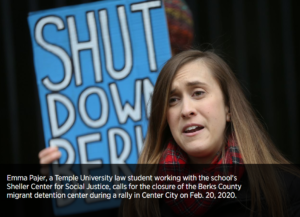“Summary Citations” are tickets issued for minor criminal offenses including disorderly conduct, loitering, harassment, and petty theft. They are considered a criminal conviction and can result in a significant fine.
In some Philadelphia collar counties, summary citations are routinely being issued to children in schools by police and school resource officers. Secondary notice of the hearing date for the citations may, or may not, be mailed to the student’s home address, which means that parents of guardians of the students may be unaware that a citation has been issued and a hearing date set. Judges may adjudicate these cases in abstentia – which means that they can find the juvenile guilty and impose a fine without the juvenile or their parents being present. Under the Public Defender Act, indigent counsel is never assigned for these cases, so even when the respondent is present for the hearing, they may be unrepresented by counsel.
Summary citations appear as an arrest/conviction on a criminal background check. Moreover, if the fines remain unpaid, a bench warrant can be issued. Furthermore, the juveniles record cannot be expunged until the fines are paid, which means that the conviction can remain on their record well into adulthood. Students involved in this project are working to investigate the scope of this practice in the Philadelphia area.

